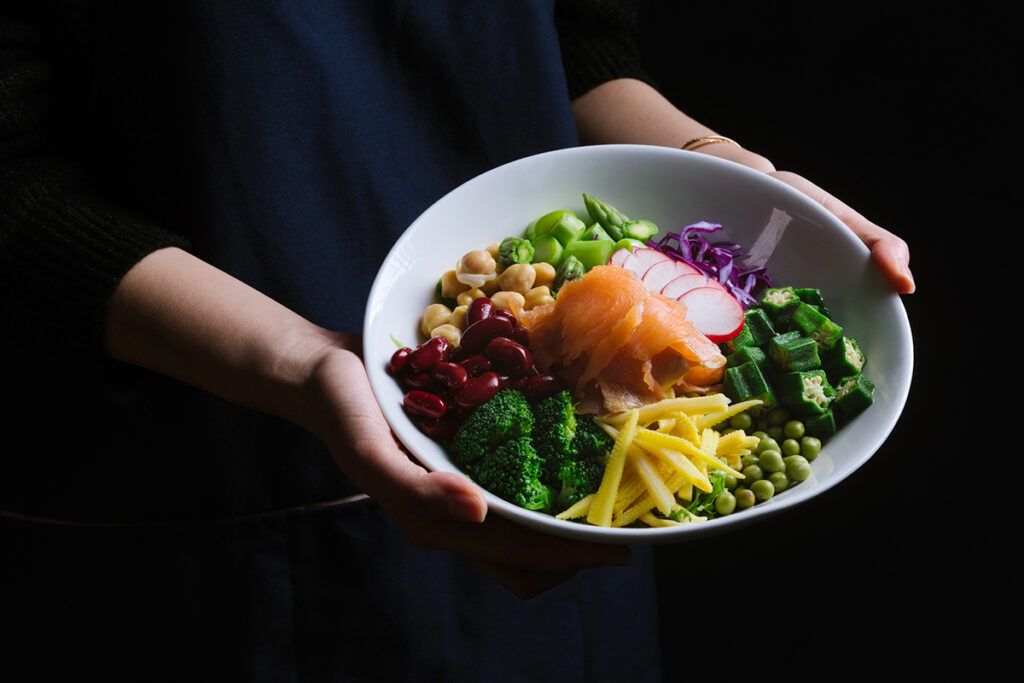People with RA have a higher risk of developing certain health conditions, such as heart disease. Avoiding certain foods can help improve your overall well-being and also reduce your risk of developing complications of RA and decrease the frequency of symptom flare-ups.
This is because RA is an autoimmune condition that causes chronic inflammation in areas like your joints, cartilage, and bones. Eating certain types of foods may cause further inflammation.
Avoiding those foods may help reduce inflammation, which may make RA easier to manage.
Foods to avoid

The National Institutes of Health (NIH) suggests that a typical Western diet, which includes rich, caloric foods and not a lot of fiber, is likely to increase the risk of RA.
While certain foods may worsen inflammation and, in turn, worsen RA symptoms, there are no particular guidelines on foods you need to cut out. Research is still limited in this area, and different foods can affect everyone differently.
You may still want to try cutting out some foods to see if this helps ease your symptoms. Here are some foods you may consider avoiding if you have RA:
- Processed and red meats: A 2019 review of studies suggested that people with RA who followed a plant-based diet excluding red meat alongside other animal products like dairy experienced an improvement in RA symptoms, likely due to the inflammatory effects of these foods. However, the authors note that more research is necessary.
- Highly processed foods: This includes fast food, ready meals, breakfast cereals, and other types of baked goods that contain refined grains, preservatives, added sugar, or fructose. Research from 2023 recommends limiting your consumption of ultra-processed foods, which may cause chronic inflammation and also increase your risk of obesity, which is a risk factor for RA.
- Added sugars: A high sugar intake may worsen RA symptoms, although more research is necessary. Consider avoiding or limiting the consumption of foods containing added sugars, such as candy, soda, ketchup, donuts, and ice cream.
- Gluten-containing foods: A 2018 study suggested that gluten, a protein in many grains, may increase inflammation and may worsen RA symptoms, while eating a gluten-free diet may improve RA. However, their evidence was inconclusive.
- Alcohol: If you drink, you may consider reducing your alcohol consumption. If you already have RA, drinking alcohol may be detrimental.
- Foods high in AGEs: Dietary advanced glycation end products (AGEs) are molecules created during a reaction between proteins or fats and sugars. The reaction causes an immune response, and the antibodies produced are related to RA development. When AGEs accumulate in your body, they can cause inflammation and oxidative stress. Foods high in AGEs include:
- red meat
- some cheeses
- mayonnaise
- oils
- nuts like almonds
Foods to try
The following foods may be beneficial for people with RA as they may help reduce and prevent inflammation and improve your RA symptoms. This may include:
- Fruits and vegetables: These are rich in antioxidants, which can prevent the inflammation and damage that cells called free radicals can cause. Fruits and vegetables also contain many vitamins and minerals that can help your body function and lower inflammation.
- Olive oil: This is preferred over other oils or fats as it contains healthy monounsaturated fat and a substance called oleocanthal that improves inflammation and pain. However, only consume it in moderation as olive oil is a fat and can cause weight gain.
- Fatty fish: Salmon, sardines, tuna, mackerel, and other types of fish rich in omega-3 fatty acids can help reduce inflammation.
- Nuts: These are rich in healthy monounsaturated fat and other properties that can help protect your heart. Walnuts also contain high levels of omega-3 fatty acids, which can help with RA.
- Peas and beans: These are important sources of protein and can support your muscle health. They also contain antioxidants, minerals, and vitamins that can help boost the health of your immune system.
- Whole grains: Consuming quinoa, oats, whole wheat, brown rice, and other types of whole grains can help reduce the risk of heart disease, which is a frequent complication that develops in people with RA.
Medical treatments
There is currently no cure for RA. Treatment focuses on slowing down the progression of the disease, preventing its complications, and improving your symptoms, inflammation, and overall well-being. This typically includes a combination of medications, therapies like occupational therapy, and, in some cases, surgery.
The medications doctors prescribe for treating RA may include:
- Anti-inflammatory medications: These drugs help ease inflammation and pain. Examples include ibuprofen (Advil) and naproxen (Aleve).
- Corticosteroids: These prevent inflammation, improve pain, and slow the progression of damage in your joints. Examples include prednisone (Rayos), prednisolone (Orapred), and dexamethasone (Decadron).
- Disease-modifying antirheumatic drugs (DMARDs): These medications slow or change the progression of RA. Examples include methotrexate (Trexall), hydroxychloroquine (Plaquenil), and sulfasalazine (Azulfidine).
Doctors may recommend physical and occupational therapy to help maintain or regain strength in specific joints that RA affects more severely. Physical therapy can help target your specific joints and help you become stronger, while occupational therapy can help you develop skills to help your daily life.
However, in some cases, they may suggest surgery.
If you need help covering the cost of medications, the free Optum Perks Discount Card could help you save up to 80% on prescription drugs. Follow the links on drug names for savings on that medication, or search for a specific drug here.
